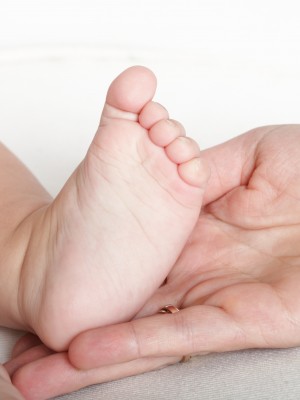By Jacqueline Shaprow ~
Proximity and touch are essential ingredients when it comes to establishing a strong bond between a mother and infant. Science shows that the development of a baby’s central nervous system and brain is heavily influenced by the way in which babies are cared for by their mothers. Many hospitals and birthing centers now recognize that mother-infant bonding and skin-to-skin contact directly after birth is crucial, which is why mothers are provided with ‘The Golden Hour’ after their baby’s birth. During this critical hour, nurses will place a newborn baby on his or her mother’s chest, and both the mother and baby are left alone to enjoy an invaluable bonding experience.
These first moments with a baby are unforgettable. I remember my newborn baby girl’s distinct smell and gazing into her eyes as she latched on to get her very first taste of breast milk – her eyes rolled back in her head from sheer pleasure.
Moms may engage in the below practices to facilitate a strong mother-infant bond:
· Breastfeeding
· Baby-wearing
· Co-sleeping
Modern day mommies who lead busy lives should not disregard co-sleeping, baby-wearing, and breastfeeding, because all of these practices facilitate touch and proximity to the infant. Additionally, breast milk is wonderful for brain development – specifically brain structures associated with social behaviors, depression, and violence. Breast milk has essential fatty acids that are beneficial for cell development and the development of an infant’s brain. The act of breastfeeding also aids in mother-infant bonding by providing babies with more comfort and cuddling from mom.
A study in the Journal of Pediatrics demonstrated that babies who were breastfed by their mothers for a longer period of time, actually scored higher on pattern-recognition and vocabulary tests and were more cognitively developed than babies who were breastfed for a shorter period of time.
After a baby is born, their brain experiences a tremendous increase in neural connections, and during this critical period, mothers should strive to establish closeness with their babies.
Baby-wearing, practiced in many cultures throughout the world such as Chinese and Native American cultures, is an excellent way of giving an infant love and stimulus. Studies have demonstrated that babies who are carried by their mothers are more often in a state of ‘quiet alertness,’ and this state facilitates learning and development of an infant. Researchers have even found that babies who are carried demonstrate a greater level of auditory and visual alertness.
Touch and proximity are key components to mother-infant bonding. Studies Dr. James Prescott has conducted illustrate that a lack of touch and proximity results in many abnormalities including violence, substance abuse, and depression. Additionally, a lack of touch may also result in malfunctions of the immune system in babies.
Why is this true? Research shows that when there is a lack of touch, it causes the release of cortisol (a stress hormone), and this stress hormone can cause long-term damage to brain structures. Touch deprivation in infant monkeys has dramatic effects, causing an increase in stress hormones, sleep disruptions, and a weakened immune system. Some scientists contend that love changes the chemicals in the brain and overtime can even alter the structure of the brain.
Science tells us that there is no such thing as “too much love” when it comes to parenting and establishing a strong mother-infant bond. Bonding with your baby will help enhance their cognitive and social-emotional development, and it will leave an indelible imprint of maternal love on your child.
About the Author
Jacqueline Shaprow is a writer, an attorney, and a graduate of Yale University. Her psychological research was published in the Journal of Health Psychology, presented at the NAASO Conference, and distributed in Germany, Russia, Scotland, Norway, and Spain. She has contributed to a legal book, and has published legal articles in the California Family Law Monthly and the Los Angeles Daily Journal. She has also published articles in the areas of entertainment, fashion, music, and travel. Shaprow currently resides in Los Angeles with her daughter, Arianna, and recently began teaching a Decision Making Course to single pregnant women and new mothers. This course assists single mothers with making positive life decisions and evaluates the psychological processes underlying the decisions we make. For more information, contact Jacqueline at jshaprow@gmail.com.

